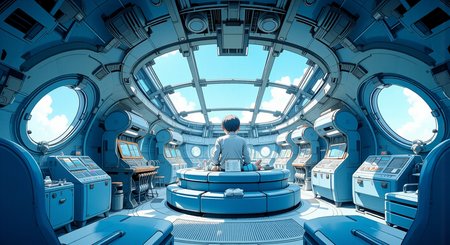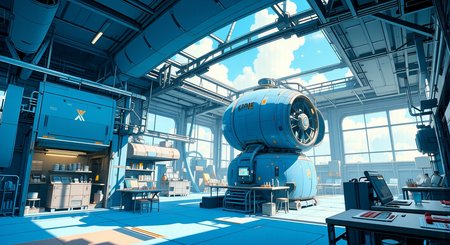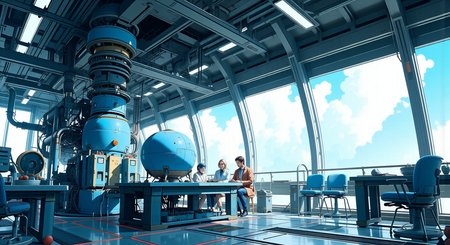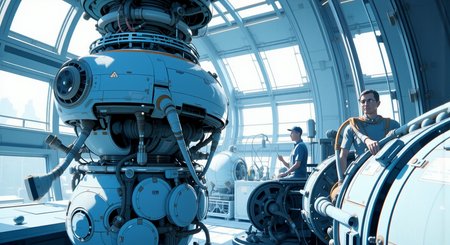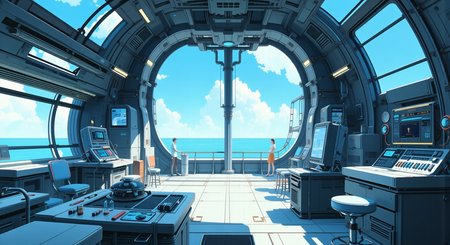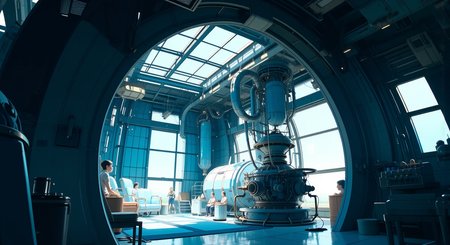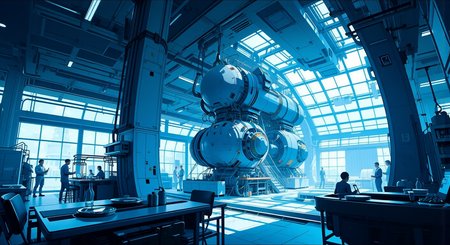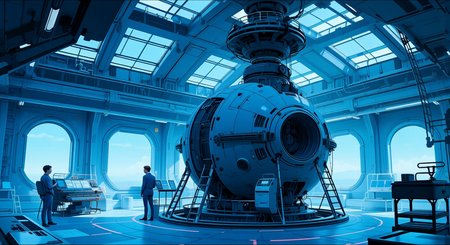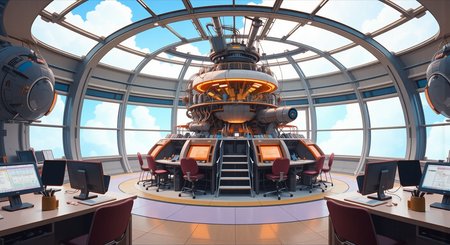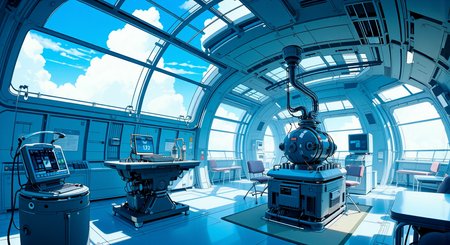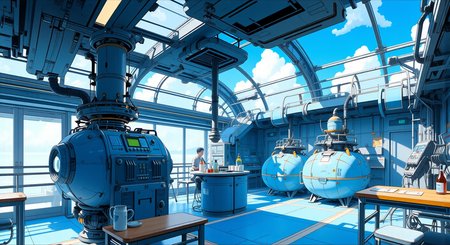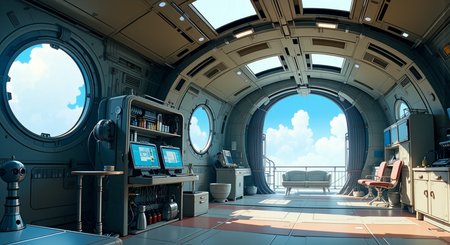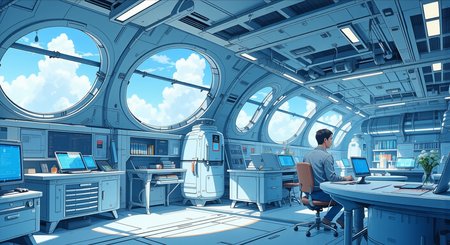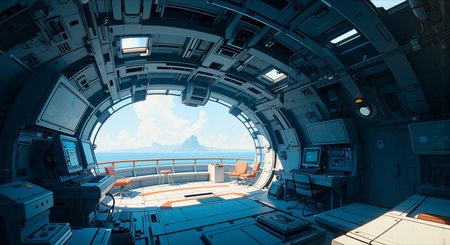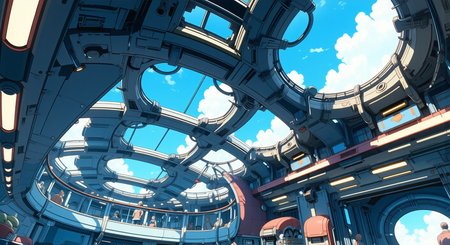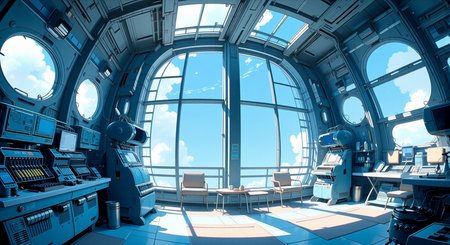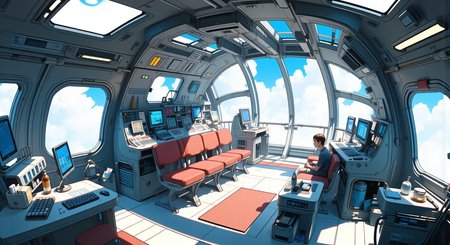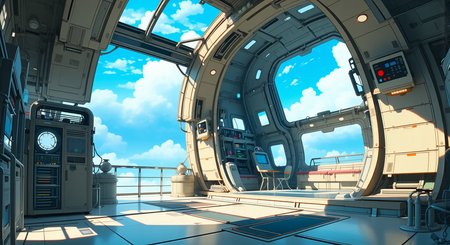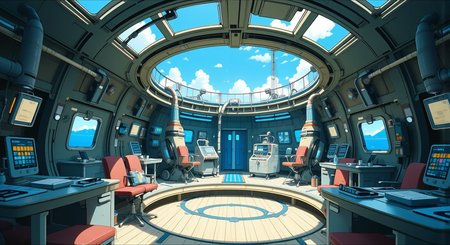part of the collection:
Airship Image Model Prompt Analysis
Executive Summary
This report analyzes a collection of prompts used to train a generative image model focusing on futuristic airships and related environments. The analysis identifies common patterns, trigger words, and examines the full scope of the model's capabilities through prompt examination. The model appears specialized in generating anime-style illustrations of airships, spacecraft interiors, and futuristic environments with distinctive color schemes and architectural elements.
Trigger Words and Associations
Primary Trigger Words
"xgx" - This appears to be the model's primary trigger word, occurring in every prompt. It seems to serve as a style indicator that signals the model to generate anime-style futuristic imagery. The consistent usage suggests this is a required token for the model to produce the intended output.
"anime" - Always paired with "xgx" at the beginning of prompts, reinforcing the anime art style directive.
Common Subject Categories
The dataset reveals two main categories of imagery the model is trained to generate:
1. Airship ExteriorsTypical prompt structure: anime xgx airship in the sky, detailed [color] armor plating, blue sky above clouds
Examples:
anime xgx airship in the sky, detailed red armor plating, blue sky above cloudsanime xgx airship in the sky, detailed pink blue armor plating, blue sky above cloudsanime xgx airship in the sky, detailed grey armor plating, blue sky above clouds
Typical prompt structure: anime xgx airship [location type], [lighting directive]
Examples:
anime xgx airship hallway roomanime xgx airship reactor room, cinematic lighting
Color Specifications
The prompts frequently specify color combinations, particularly for airship exteriors:
Red armor plating (most common)
Grey armor plating
Pink/blue combinations
Blue/purple combinations
Pink/green combinations
Visual Elements and Setting Characteristics
Exterior Imagery Characteristics
Environmental Context
Almost always set "above clouds" in a "blue sky"
Creates a consistent aerial setting for the airships
Visual Descriptors
"Detailed" - Common qualifier emphasizing intricate designs
"Armor plating" - Suggests militaristic or protective design elements
Specific viewpoints: "wide shot," "close up," "distant"
Vehicle Variations
Standard "airship"
"Airship tanker" - Suggesting larger, cargo-oriented vessels
Interior Imagery Characteristics
Room Types
Hallway rooms - Appear to be observation areas with windows showing exterior views
Reactor rooms - More industrial/technical environments with machinery
Lighting
"Cinematic lighting" specifically mentioned for reactor rooms
Interior scenes generally described with blue-dominant color schemes
Detailed Content Analysis
Exterior Descriptions
The exterior airship descriptions reveal several consistent elements:
Design Aesthetics
Futuristic/sci-fi appearance
Steampunk influences in some variations
Mechanical components prominently featured (gears, pipes, propellers)
Often described as "floating" or "hovering" rather than simply flying
Structural Features
Multi-layered construction
Weaponry and defensive systems
Complex, intricate mechanical details
Glowing elements (often blue lights regardless of main color scheme)
Color Treatment
Bold primary colors (red being most common)
Often contrasting color combinations (red/blue, pink/green)
Metallic accents
Interior Descriptions
The interior environments share distinct characteristics:
Architectural Elements
Cylindrical structures and circular windows
Viewing areas with large windows showing clouds/sky outside
Control panels and technological equipment
Industrial aesthetic with pipes, conduits, and mechanical components
Color Treatment
Predominantly blue color palette
Cool-toned ambiance
Metallic surfaces highlighted by directional lighting
Functional Spaces
Control/monitoring stations with screens and consoles
Machinery spaces with large cylindrical or spherical central elements
Observation areas with views to the exterior
Prompt Patterns and Structure
Structure Analysis
Basic Formula
anime xgx [subject type], [detail specifications], [environment]Additional Modifiers
Perspective indicators: "wide shot," "close up"
Size/distance indicators: "distant"
Color-Subject Relationships
Armor plating colors are consistently specified for exteriors
Interior environments typically default to blue without explicit color specification
Vocabulary Frequency
High-frequency descriptive terms:
"Futuristic" - Establishes the technological era
"Mechanical" - Emphasizes the industrial/technical nature
"Intricate/detailed" - Signals complex visual elements
"Atmospheric/ambiance" - Describes mood and feeling
"Otherworldly" - Sets expectations for fantastical elements
Model Capabilities and Limitations
Strengths
Specialized Domain Focus
Highly specialized in anime-style futuristic airships and environments
Consistent handling of mechanical/technical details
Strong color scheme implementation
Environmental Integration
Consistently places airships in appropriate aerial contexts
Creates coherent relationships between interiors and the external environment
Stylistic Consistency
Maintains anime aesthetic across different subject types
Consistent futuristic/sci-fi visual language
Apparent Limitations
Narrow Subject Range
Focused exclusively on airships and related environments
No evidence of character-focused imagery capabilities
Limited to specific technological/architectural styles
Fixed Environmental Settings
Almost exclusively set in daytime sky environments
Limited variation in weather conditions or time of day
Conclusion
The analyzed prompt collection reveals a specialized image generation model focused on anime-style futuristic airships and related environments. The model appears to require specific trigger words ("anime xgx") and follows consistent structural patterns in its prompts. The imagery capabilities span both exterior views of fantastical airships and interior environments of these vessels, with consistent stylistic elements across both categories.
The color specifications play a significant role in the prompts, particularly for exterior shots, while interior environments maintain a consistent blue-dominant aesthetic. The model appears designed to generate intricate, detailed mechanical environments with a distinctly futuristic sci-fi appearance, consistently rendered in an anime style.
This analysis provides insight into both the capabilities and limitations of the model, showing strong specialization in a particular visual domain rather than general-purpose image generation.
